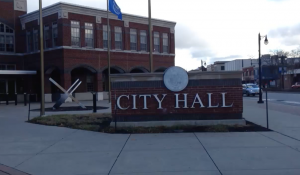State Senate President John Cullerton (6th) has an idea to fix the state’s teacher pension shortfall, but Illinois taxpayers may feel the crunch: he’s asking for more money from school districts.
John Patterson, Cullerton’s spokesman, said Illinois school districts contributed only $171 million, or less than one percent, to the total Teacher Retirement System (TRS) pension fund in 2010. He said the state contributed just over $2 billion to pensions in 2010. With teachers contributing $899 million from their paychecks and $3.7 billion coming from investments, the total state budget for pensions in 2010 was $6.8 billion.
The main issue is the unfunded liability that exists in the TRS, which currently sits at $77.3 billion. Unfunded liability is the money that the state has borrowed for pensions. Dave Urbanek, the TRS public information officer, said there are 87,000 retired teachers in Illinois that collect a pension. While the state hasn’t yet missed a pension payment, Urbanek said more teachers retire every year.
“We don’t have collateral for that,” Urbanek said.
Under Cullerton’s plan, the school districts would be asked to contribute a higher percentage of the real cost portion of the pension, while the state works at reducing the unfunded liability. Cullerton has no timeline to construct the suggestion into a bill.
“We’re putting it out there to see what people think,” Patterson said.
School administrators, however, are wary of the thought of districts being asked to contribute more money to pensions.
“This becomes very personal,” said Jim Woodward, the superintendent of the Anna-Jonesboro school district. “They’re expecting local school districts to make up the shortfall, but they’re (state legislators) the ones who haven’t done their part.”
Woodward said that school districts would be forced to use money from their general funding, which would negatively affect students in areas such as transportation and bussing. Woodward cited the increasing cost of diesel fuel for school buses.
“I’m paying $4 a gallon in diesel fuel,” said Woodward. “Something’s going to have to give.”
Janet Ulrich, Union County regional superintendent, said districts could offset the cost by asking teachers to contribute more to the TRS. Teachers each contributed 9.4 percent of their paycheck in 2010.
Ulrich said in order for teachers to contribute more, contracts between the districts and teachers would have to be renegotiated. But according to Ulrich, some teacher-district contracts have a “zipper clause” that prevents contracts from being reopened.
“There are pre-existing contracts here and we’re not considering the consequences,” she said.
It is a lose-lose proposition, according to Ulrich.
“If it falls to the districts, that’s when taxpayers will feel it,” she said. “If it falls to the employees, we’ll lose teachers because they’ll be getting less than what they’re used to.”
But Patterson said there would be a phase-in for the plan, giving districts time to prepare. He said Illinois’ new pension plan would mirror Missouri’s.
Steve Yoakum, executive director of Missouri’s Public School and Education Employee Retirement Systems (PSRS), said Missouri teachers and the 540 school districts split pension contributions 50/50. He said if there’s an increase in teacher’s contributions, Missouri school districts must match the increase. Yoakum said Missouri teachers and districts currently contribute 14 percent each and the pension receives no state funding.
The catch is that Missouri has been using the same system since 1946, Yoakum said, and starting a new system in Illinois would be costly. He said no Missouri district has ever missed a contribution.
“They both have skin in the game. It’s a nice mitigating system,” said Yoakum.
But Bukola Bello, director of Illinois Retirement Safety Initiative (IRSI), said Illinois should continue to contribute state funds to pensions, just at a flat rate. She said the state could contribute a set amount to the pension each year.
“I don’t think it’s fair to ask the districts (to pay more). We can’t rob Peter to pay Paul,” said Bello.
Patterson said he welcomes IRSI’s input, but a flat rate won’t help because the payments increase every year.
“Then we’re right back to trying to find more money for the pension payment,” Patterson said.













Be First to Comment